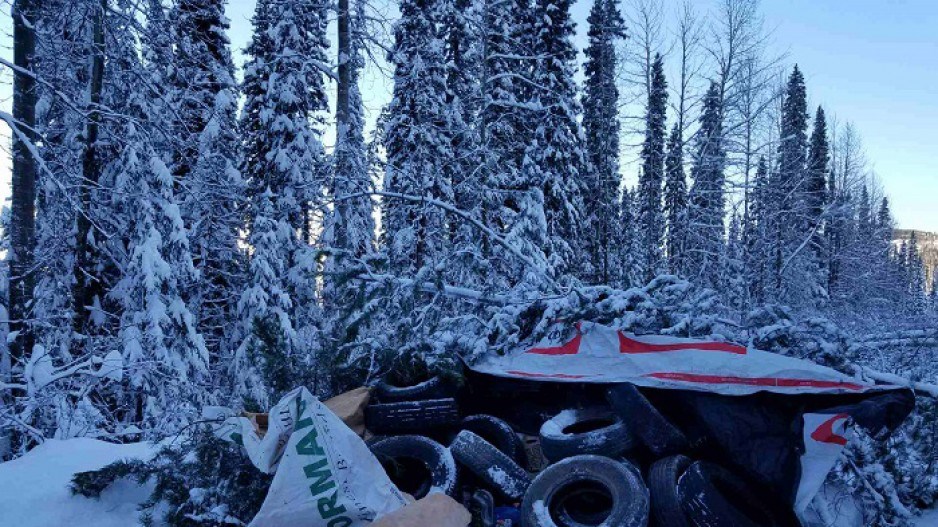The BC Civil Liberties Association has weighed into the ongoing clash between Coastal GasLink and members of the Wet’suwet’en First Nation who oppose the project.
The BCCLA has filed complaints against the RCMP on behalf of two citizens who say they were prevented by police from entering a new exclusion zone set up by police.
RCMP set up a blockade to prevent anyone from crossing the Morice River Bridge without permission on Monday, January 13. The RCMP are enforcing a court injunction preventing anyone from interfering with Coastal GasLink workers. RCMP say they have encountered blockades of trees that were deliberately cut to prevent anyone from travelling along the Morice West Forest Service Road, as well as a cache of "accelerants" – tires, gasoline, and fuel-soaked rags.
"We will take steps to ensure that those who unlawfully interfere with or threaten the safety of any person or property may be held accountable in accordance with the laws of Canada," the RCMP said in a press release. "This applies to demonstrators, industry employees and contractors, as well as the general public."
According to a press release, two Wet’suwet’en members – Delee Alexis Nikal and Cody Thomas Merriman – were prevented from getting past the police barricade to bring in food and other supplies on January 13.
“We are extremely concerned about the use of exclusion zones prohibiting Wet’suwet’en people, the public, and media from accessing Wet’suwet’en territories,” BCCLA executive director Harsha Walia said in a press release.
“This exclusion zone constitutes a serious violation of both the Indigenous rights and Charter-protected rights of Wet’suwet’en people and their family members.”
According to an RCMP statement, hereditary chiefs, elected band councilors, government officials, journalists and people bringing in food and other supplies will be allowed into an exclusion zone, but must be vetted by police. Journalists, for example, must provide proof of their media credentials.
“Both Merriman and Nikal were clearly transporting food and supply to the RCMP exclusion zone and were denied,” Walia told Business in Vancouver. “So the legal complaint is on the basis that it is in contravention of the RCMP’s press release.
“We have noted on social media from reporters who were denied access on January 13.”
The Union of BC Indian Chiefs and BC Government and Service Employees Union are also lending their support to Wet’suwet’en pipeline opponents and the complaints against the RCMP.
“As a trade union committed to supporting the full implementation of the calls to action of the Truth and Reconciliation Commission and the recommendations of the United Nations Declaration on the Rights of Indigenous Peoples, we are deeply troubled by the use of exclusion zones prohibiting access to Wet’suwet’en territories,” BCGEU Treasurer Paul Finch said in a joint press release.




